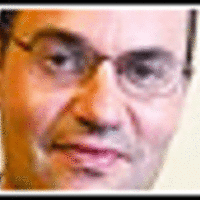Pension investing and developing countries
Loading...
In the developed West, individuals seek to have a comfortable retirement and have saved trillions of dollars in private savings and mutual fund holdings and retirement plans. The institutional investors are aware that U.S Treasuries pay 0% right now. Will the U.S Stock Market yield a 7% annual return over the next decade? It is possible but this would mean that the Dow Jones will be rise to 25,000 in the year 2022. If the Dow Jones experiences such a rise, then Glassman and Hassett will be selling more copies of their 2nd edition of Dow 36,000.
So, I predict that institutional investors will turn to the developing world seeking higher returns but what are the risks of seeking those returns? Will Moodys and S&P invest in highly trained institutional analysts so that Western investors actually know the true risks that they face in investing in the developing world?
I predict that the asymmetric information issues that we faced with the mortgage backed securities in the U.S will be even more severe here.
There is also the issue of political risk. How will the ratings agencies use econometric models to predict whether there will be a coup in Egypt and whether the new government will renege on foreign debt? I recognize that if investors know that they don't know these risks that they will demand a larger risk premium in terms of higher interest rates.
As the U.S has trillions invested in certain LDC nations, will we ask our military to get involved to protect our interests in these nations? In the past, there were multinational companies such as Exxon who had invested in irreversible capital in such nations but I'm anticipating that moving forward that hundreds of millions of Americans will have a financial stake in the health of these LDCs because the productive growth is taking place there and our capital has been invested there. Will this "skin in the game" make our people more interested in foreign affairs? Will more Congressmen get a passport?






